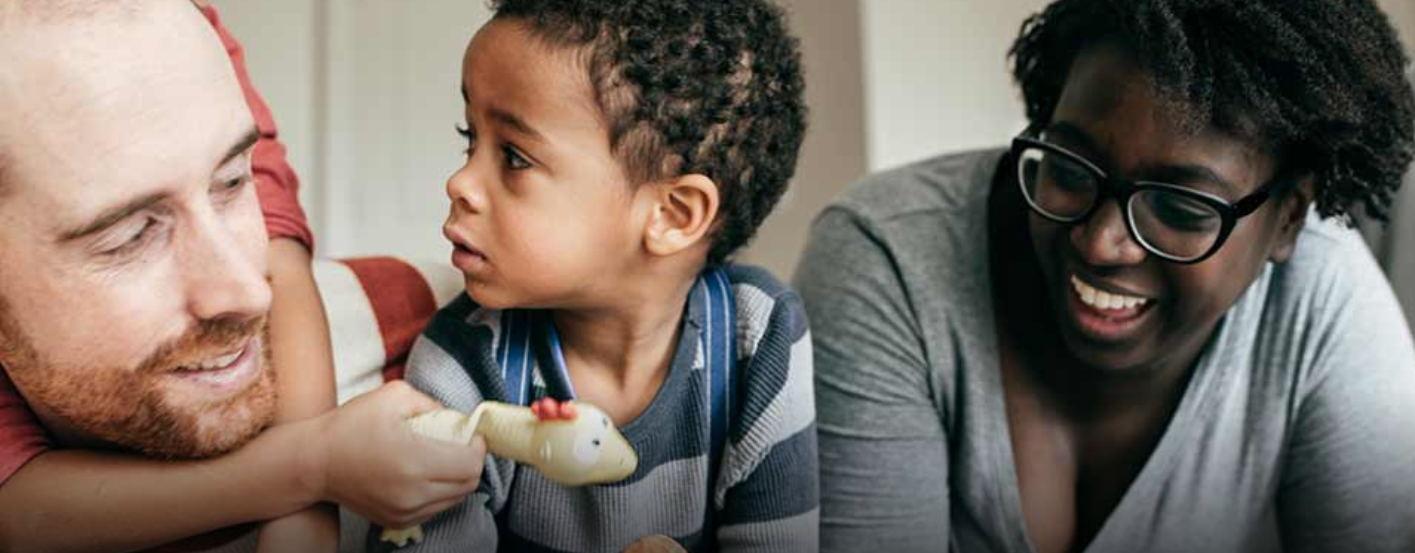Be Well and Prosper

Lockdown and Family Wellbeing
COVID-19 lockdowns: what they mean for your family
Lockdown means more time at home with your family and it might mean that you are balancing supervision of children’s learning, family time, and work commitments.
This is a challenging experience. It can also be a positive experience if you can:
- make the most of family time
- use routines to support family health and wellbeing
- stay connected with others in creative ways
- manage family conflict in positive ways.
Making the most of family time during lockdown
Lockdown can give you more opportunities to spend time together as a family and by spending more time together as a family, you can build relationships and help your children feel happier, safer and more relaxed during this experience. If you are working from home, you might not always have a lot of time during work hours. So it’s all about making the most of the time you do have by giving your child positive attention and turning everyday moments into quality time.
Positive attention
You can give your children plenty of positive attention, even during brief interactions. For example, positive attention can be:
- making eye contact and smiling at your child
- showing your child a lot of affection – this could be giving cuddles or saying ‘I love you’
- telling your child you are proud of how they are handling the situation
- praising your child when they put effort into their schoolwork or chores
- showing interest in what your child has done each day
- stopping to listen, if you can, when your child wants to talk, especially about things that are worrying them.
Quality time
During lockdown, you can turn everyday moments into quality time. Quality time can be:
- a shared laugh when you are bathing your toddler
- a chat while you are folding the laundry with your preschooler or preparing dinner with your pre-teen or teenage child
- a break from work so you and your child can make lunch or a snack together.
If you can, plan some regular, one-on-one time with each of your children. Children have different personalities, and some children might seem to need less time than others – but they will all benefit from special time with you during lockdown.
Fun tips for family time during lockdown
Your family might have to do some things differently during lockdown, but there are still many things you can do together. Here are some fun ways you can spend time together and build your relationships:
- Go for a walk or bike ride together if public health orders allow, and you can keep a responsible distance from other people.
- Encourage your child to draw a picture for someone, then take a photo and send it to family or friends.
- Play family games together – you could try board games, 20 questions or charades.
- Have a picnic in the garden, on the balcony or in the living room.
- Start a chapter book, and read one chapter each day. Or tell a story together – you can take turns to add the next instalment.
- Make a family playlist, and have an indoor singing, lip sync or dance party.
- Follow along to some YouTube exercise videos.
- Make and edit a short video together.
- Take a virtual tour of a gallery or historic place together.
- There are many support services that can help your children during lockdown. Your children can call Kids Helpline on 1800 551 800, Youth Beyond Blue on 1300 224 636, and eheadspace on 1800 650 890.
Using routines to support family wellbeing during lockdown
For health and wellbeing during lockdown, children need a sense of security, healthy eating, physical activity, good sleep, play and quiet time. You need these things too. A good way to make sure you all get what you need for physical and mental wellbeing is to plan a new daily routine.
How routines can help children and teenagers during lockdown
Routines let children know what to expect. This means they can help children and teenagers feel safe and secure. This is really important during lockdown, when children and teenagers might be feeling stressed, worried, frustrated or just bored. If children and teenagers need to do schoolwork, a routine can help them get through lessons and keep up with learning at home. It’s also a good idea to make time for different kinds of play in your children’s routine – for example, outside play, quiet play, craft, reading, digital play and so on. This can help your children get a good balance of activities into their days at home. Routines can help children and teenagers stay healthy and hygienic too. For example, more careful hand-washing can be part of the routine, as can exercising, eating and going to bed at regular times. Also, routines can reduce stress, and lower stress is good for children’s immune systems.
How routines can help you during lockdown
Routines can help you to:
- get through your daily tasks, freeing up time for your children and time for yourself
- share out household chores in a fair way while everyone is at home
- feel like you are doing a good job as a parent
- feel more organised and in control, which lowers your stress
- step back from sorting out disputes – for example, if Wednesday night is one child’s night to wash up, there’s no need for a sibling fight about who does the job
- why routines are good for family relationships
- routines can strengthen family relationships.
For example, if you are all at home during lockdown, it might be easier to share regular family meals and family meals can be a great time for you to check in on each other. If you have younger children, reading a story together before bed can be when you and your child have special, comforting time together during lockdown. For older children and teenagers, a regular card game could work in the same way.
Here’s a tip: why not make time for gratitude during your family routine? This is about regularly sharing something from your day that you are grateful for. It can help you all to feel good and stay positive. You do not need to schedule every part of your day into a family routine during lockdown. It’s also good for you all to have free time to relax. The more say that children have in making and adjusting the routine, the more likely they are to stick with it and get the most out of it. But if your child is finding it hard to stick to a routine for home learning, talk with your child’s teacher or year adviser.
Staying connected with others during lockdown
Staying connected with your extended family and friends is an important part of maintaining your wellbeing and staying positive during lockdown. But it can be hard to stay in touch with people when you cannot visit or you are not catching up at sport, church, school pick-ups, family barbecues and so on. This means you might need to be a bit creative.
Here are examples of how you and your children can stay in touch with friends and family:
- Encourage older children and teenagers to go for a walk, run or bike ride with a friend if public health orders allow.
- Take younger children for a walk with a local friend or family member if public health orders allow.
- Have a virtual lunchtime or playdate so your child can see and talk to friends while they are eating or playing.
- Join your local playgroup at home community to connect with families, playgroup volunteers, children’s educators, entertainers and authors.
- Set up a schedule for phone calls or video chats with extended family members who do not live in your house.
- Help your child set up a group chat using an app so your child can talk to friends and share funny articles or videos.
- Suggest that older children and teenagers spend time playing online multiplayer games with their friends.
- Celebrate birthdays and achievements by sending e-cards or video messages. Or get some postcards, writing paper and stamps, so your child can stay connected the old-fashioned way.
Family conflict management during lockdown
Fights among younger siblings and fights among teenage siblings are common at the best of times. During a stressful experience like lockdown, it’s pretty natural for families to experience more conflict. The good news is that sibling fights and family conflict can be a great chance for your children to practise social skills like problem-solving. It’s also a chance for you to be a problem-solving role model. When you approach family conflict like this, it can reduce everyone’s stress levels and make your family relationships stronger. There are a few things that can help you prevent sibling fights and manage family conflict during lockdown:
- Set some family rules early on. For example, ‘We use calm words if we are feeling cross’ or ‘We try to breathe deeply before we react’.
- Praise children when you see them getting along well or working together to sort out a problem. For example, ‘It’s great how you came up with a roster for the PlayStation’.
- Wait before you step in to handle sibling fights. Sometimes this gives children the chance to sort things out for themselves. But if a disagreement gets physical or involves shouting or nasty remarks, you need to break it up.
- Try to get children involved in calmly reflecting on the disagreement, sorting out what should happen next, and discussing how they might be able to avoid a similar conflict in future.
You might find that there is more conflict between you and your older child than before lockdown. In this situation, it can help to pick your battles. So even if you would prefer for your child to make their bed, think about whether it’s really worth arguing about. You might want to save your energy for important things like making sure your child is getting enough healthy food, sleep and exercise.
From: https://raisingchildren.net.au/guides/coronavirus-covid-19-guide/lockdown-family-wellbeing
Aitken Wellbeing Committee

